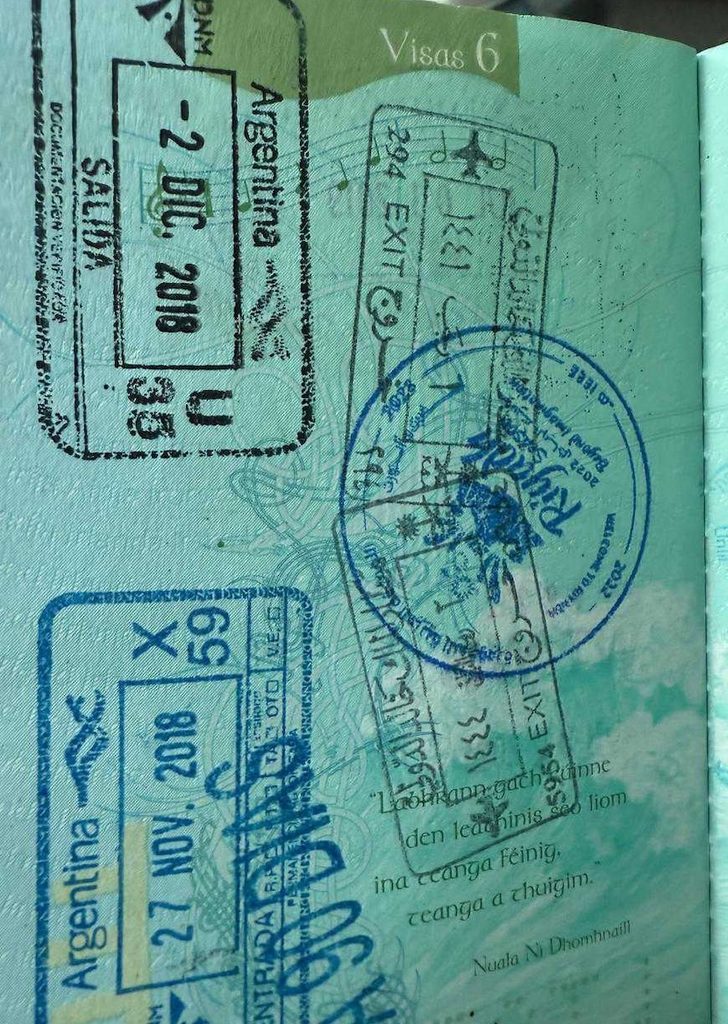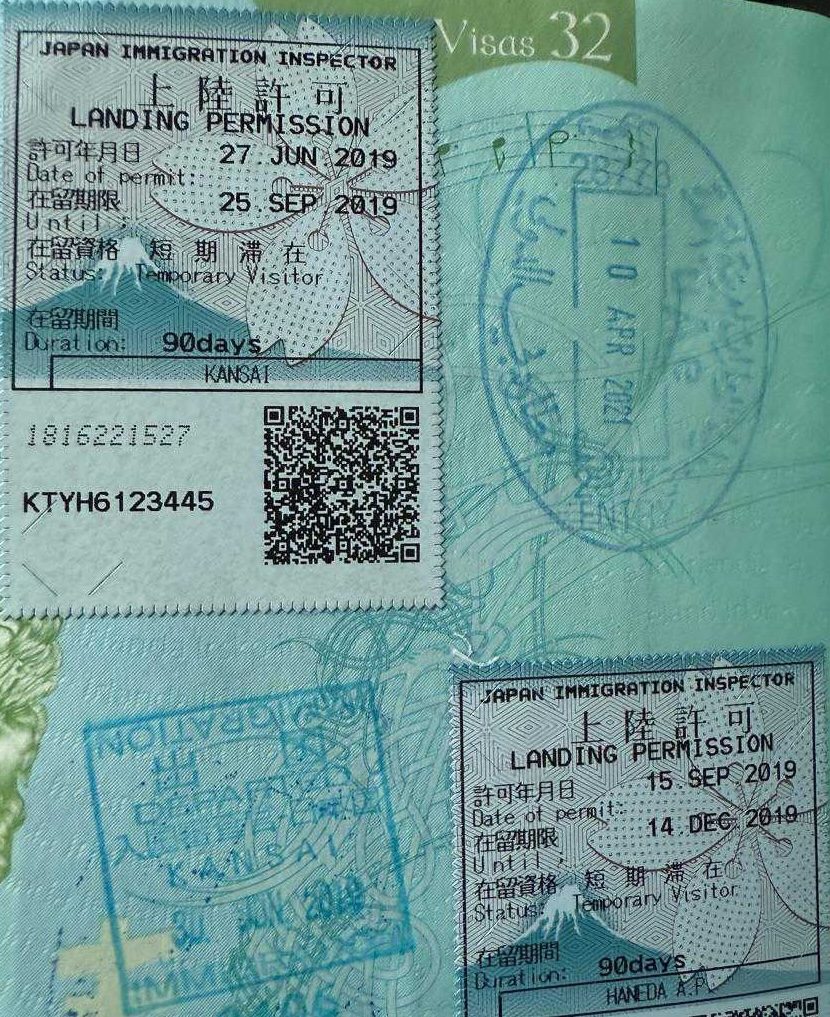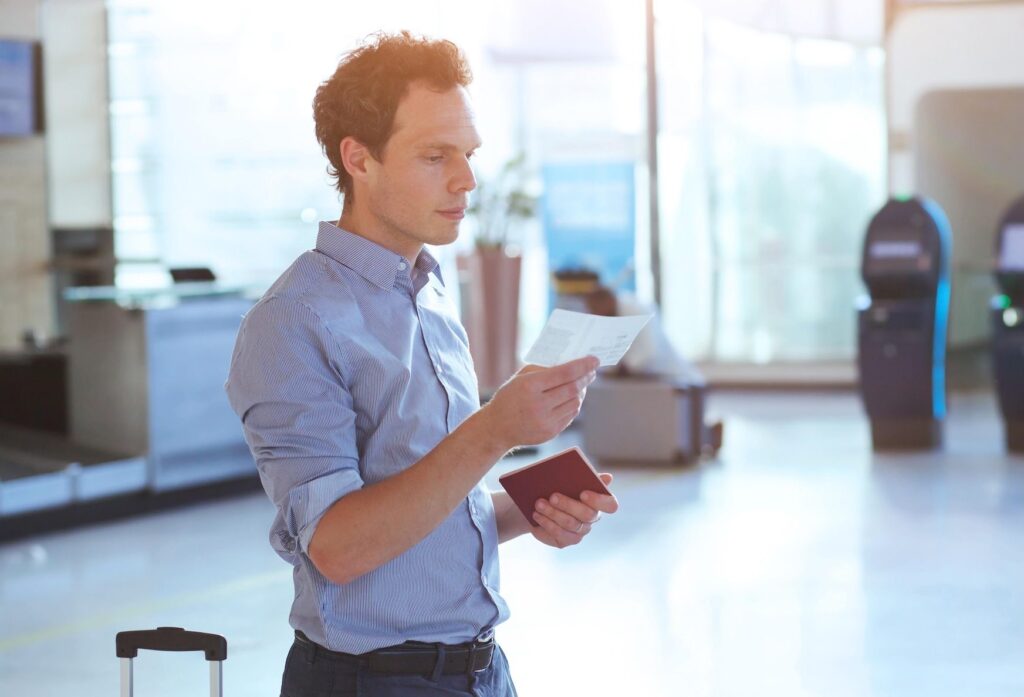The issuance of a new passport is one of those life-events – like births and deaths, marriages and funerals – that ought to prompt a moment’s reflection.
My new 10-year document is awaiting collection in the Irish Embassy in Abu Dhabi, and I will pick it up on a trip to the capital next week, reassured that I will be able to “pass freely and without hindrance” around the world, and that if I get in trouble I’ll have “all necessary assistance and protection” as requested by the Irish minister for foreign affairs.
But before I pick up the new one, it’s time to have a look back on the past 10 years as told in the 66 pages of the old document due to expire soon.
It’s more battered and bedraggled now than it was back in 2015. Most of the pages are full of visas and immigration control stamps and the back is covered in those “Group Security Emirates” stickers that they insist on permanently attaching at DXB, especially for flights to the USA. Why do they do that?
But flicking through the dog-eared pages is like a conversation with an old companion with whom you’ve shared many an adventure, and makes me genuinely nostalgic. Every visa page tells a story.
My passport’s decade got off to a spectacular start with a visa from the Bolivarian Republic of Venezuela that enabled me to accompany Ahmed bin Sulayem, chairman of the Dubai Multi Commodities Exchange, on an official visit to that troubled country in his role as head of the Kimberley Process, the global diamond industry regulator.
Bin Sulayem was keen to steer Venezuela back into the Kimberley fold after some transgression had led to its expulsion and asked me to join him as official rapporteur of the visit.
It was downright weird. We were met by armed police outriders in Caracas and delivered to a huge Graeco-Roman style government hotel where we seemed to be the only guests. Our hosts – thoughtfully aware of the sensibilities of a Muslim man in this environment – had tactfully covered the nude statues and paintings in black shrouds.
That, and eating at McDonald’s in a local mall with an armed police escort, were the highlights.
Another surreal event was witnessing the “high five” between Saudi Crown Prince Mohammed bin Salman and Vladimir Putin at the G20 in Buenos Aires – just a short time after the murder of Jamal Khashoggi in 2018 – and then discussing the choreography with media colleagues at a tango nightclub in the city later in the day.
Sometimes geopolitics can only be understood as an extended “quebrada” dance move.


Flicking through the pages – mainly expired UAE residence visas, DXB entry stamps and Saudi visas advising me I was “not permitted to work” while in the kingdom – I come across two collectors’ items: entry visas for the Russian Federation.
Remember those lost days of 2019, when a trip to Russia was a normal event and the only risk was of being ripped off by an airport taxi driver?
In the summer of that year, I attended the Saint Petersburg International Economic Forum – then an up-and-coming rival to Davos – and witnessed President Putin in action in front of an adoring local press corps.
In November I travelled again for Moscow Energy Week and saw Prince Abdulaziz bin Salman, then the newly appointed energy minister of Saudi Arabia, explain how the kingdom had recovered so quickly after the devastating recent attacks on oil facilities at Abqaiq and Khurais.
Will my new passport ever receive a Russian travel document? The odds are against, I think, for a whole host of reasons. For similar reasons in the Trump era, I think it will also be a while before the new document gets another “admitted NYC” stamp.
2019 was probably my peak year for global travel. The expiring passport shows trips to the G20 in Osaka that autumn, another visit to Tokyo on a media trip, and – chillingly – a visa for Beijing in November.
The China event was to attend the Bloomberg New Economy Forum, staged in the shadow of the Great Wall with an array of star speakers. But it took place only a few days before the outbreak of Covid-19, and with hindsight I was lucky to receive the exit stamp at Beijing airport on November 22.
For a man of my years, the other consideration on collecting a new passport is: will this be my last? I’d better set about filling up those pages quickly.
Frank Kane is Editor-at-Large of AGBI and an award-winning business journalist. He acts as a consultant to the Ministry of Energy of Saudi Arabia
Register now: It’s easy and free
AGBI registered members can access even more of our unique analysis and perspective on business and economics in the Middle East.
Why sign uP
Exclusive weekly email from our editor-in-chief
Personalised weekly emails for your preferred industry sectors
Read and download our insight packed white papers
Access to our mobile app
Prioritised access to live events
Already registered? Sign in
I’ll register later



